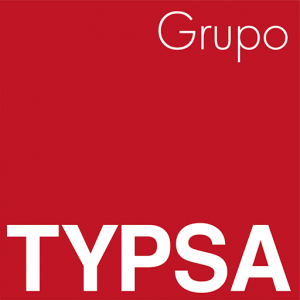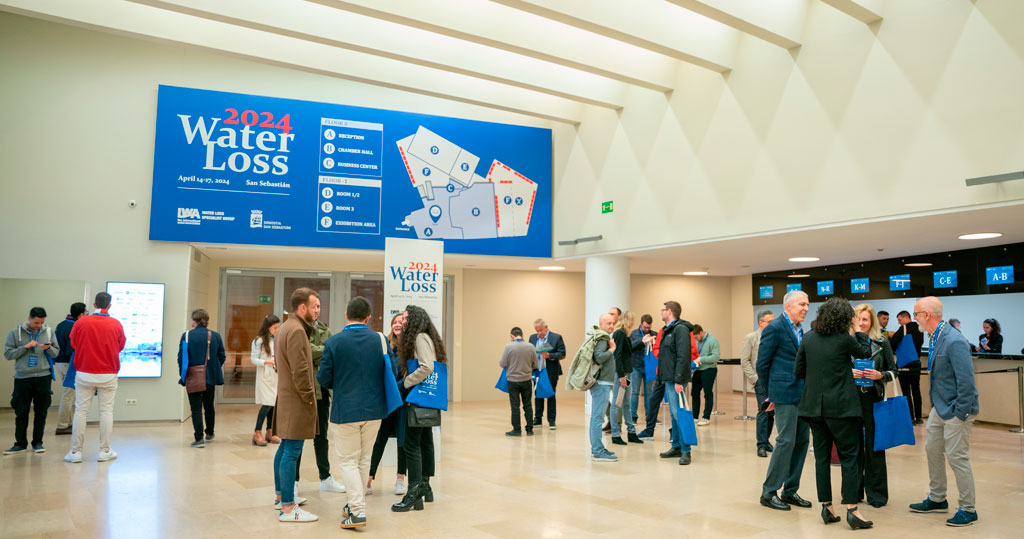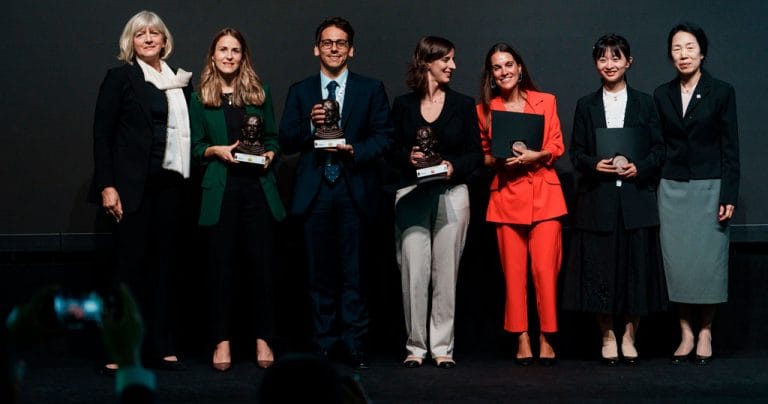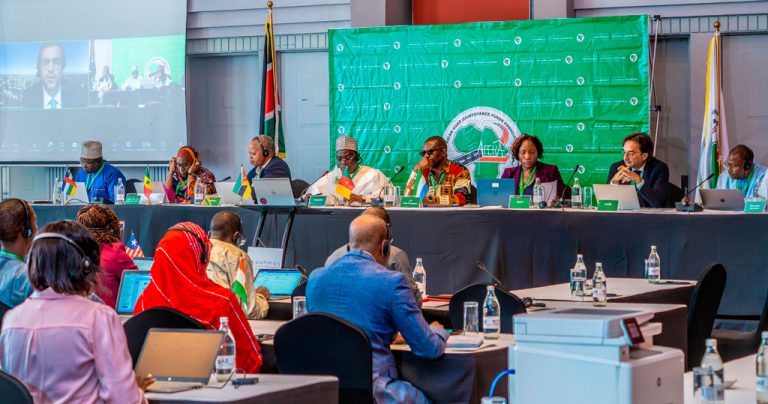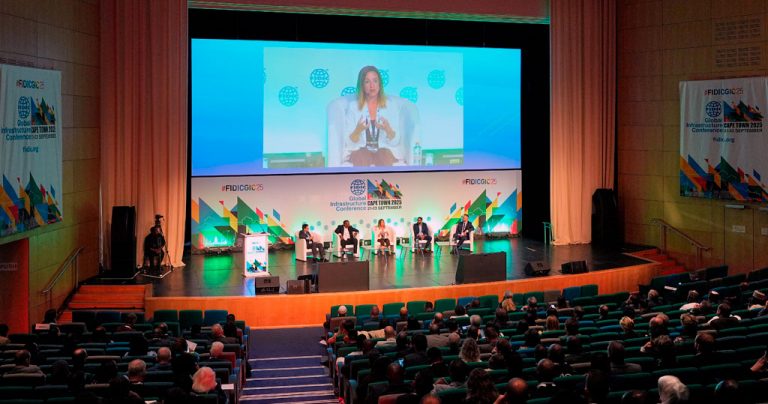Presentation of the experience gained in the RANC-EE project, Costa Rica
Organised by the International Water Association (IWA), the Water Loss 24 conference was held in Donostia-San Sebastián (Spain) in April, to share experiences and developments in managing water loss in supply networks. The conference, organised by Water Loss Specialist Group, one of the most active groups within the association, is held biennially. Donostia-San Sebastián city council hosted the conference on this occasion, which was attended by more than 600 experts from all over the world.
The IWA is an international association of water industry professionals, and is present in more than 140 countries, bringing together scientists, researchers, technology firms, and water companies to ensure that water is managed intelligently, sustainably and equitably. The association is a means of sharing information and knowledge, establishing a network of professional and business contacts, organised across 51 working groups to address different water management topics.
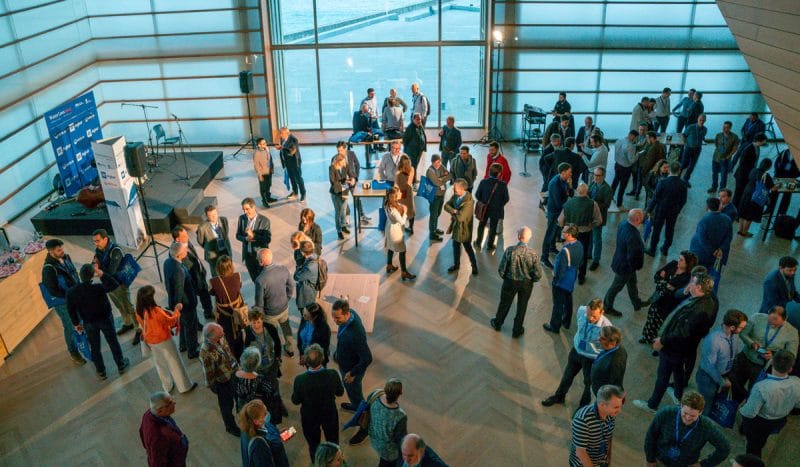
As previously announced, TYPSA is leading the Programme for the Reduction of Unmetered Water and Optimisation of Energy Efficiency in Costa Rica (RANC-EE project) to reduce leakage losses and strengthen the commercial management of the Institute of Aqueducts and Sewage in various regions of the country, affecting more than 2 million inhabitants.
The experience gained in this project has been of great interest to the participants in the conference, specifically contained in two presentations, given by José Delgado and Francisco Arregui respectively.
The first presentation, titled ‘Determining the consumption pattern by using smart water meters’, showed new technology which characterises in detail user water consumption, more economically than traditional methods used so far. This technology allows for the identification of leaks in the users’ interior installations, detect fraud, abnormally high consumption and any incident related to water usage. In addition, the data profilers allow the extraction of valuable information in the management and renovation of the meter park, helping the institution to select the most appropriate measurement technology and optimise renovation activities.
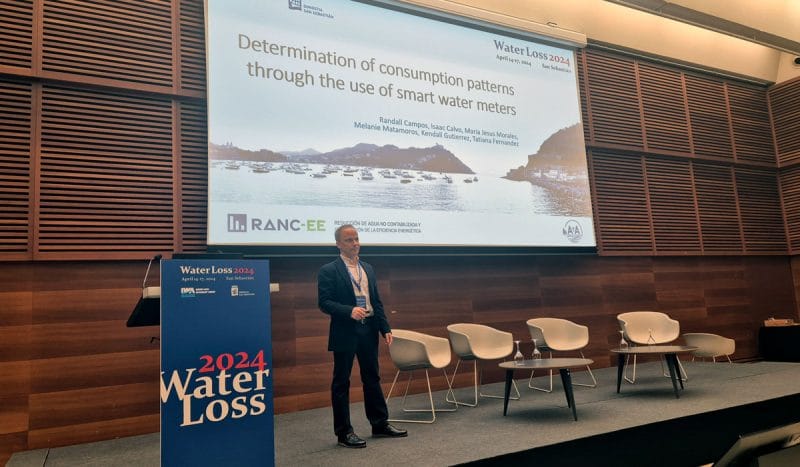
The second seminar was on ‘Business Intelligence as a driver of digital transformation for the reduction of unmetered water’. Commercial management generates tens of millions of data entries, all of which are very useful for reducing unmetered water. The transformation of data into knowledge allows concepts to be converted into effective actions, and more importantly, evaluate real impact through an objective analysis of the results. This is fundamental for the reduction of unmetered water, which necessarily implies an improvement in efficiency, requiring a change in the way of working. The use of business intelligence as a driver of process change is an innovative approach of great interest to many organisations.
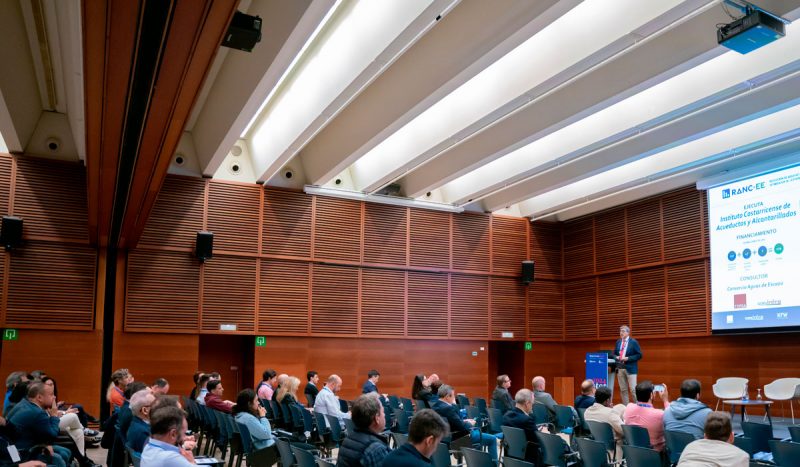
In the case of the RANC-EE project, we have chosen a set of Integrated Solutions for Digital Transformation, which collaborate to obtain knowledge which is reflected on a Dashboard.
Consisting of two levels: on the one hand, three operational solutions, which implement software that is already well-established in the water market (GIS system with hydraulic modelling; Loss Control System and Maintenance Management System) and, on the other, business intelligence solutions, which work with a single data warehouse repository, fed from different sources and providing information to the dashboard calculation engine, which in turn transforms information into knowledge. These are tools and systems developed mainly within the framework of the project: Meter Park Management, Pressure Management, Pipe Replacement, Fraud Control and Claims Analysis.
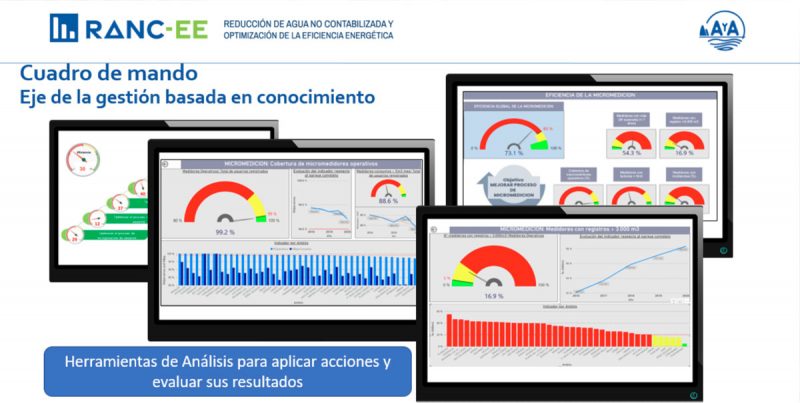
Finally, the dashboard, the axis of knowledge-based management, is characterised by a rapid visualisation of indicators, associated with goals, and which allows disaggregation by processes. Details can be gradually abstracted, visualising the situation from a strategic level with just a few indicators, identifying the problem and then delving into different levels to establish causes, apply actions, and identify cause-and-effect relationships.

